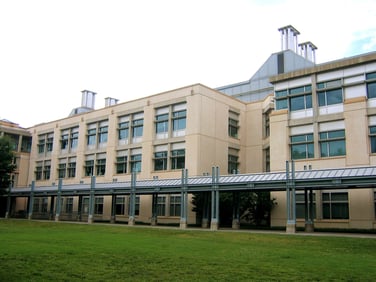We live in the information age. Many jobs now require the ability to learn large amounts of information and apply that to novel tasks. In the military this ability is critical. However, mastering a new task, skill or information often takes the right environment, mindset, and sharp focus. It also can require a lot of repetition and time. In some situations, that’s a luxury the military can’t afford. Therefore, the U.S. Defense Advanced Research Projects Agency (DARPA) recently approved $9.85 million in new research funding to develop a system that will help military personnel quickly master new skills and digest vast quantities of information.
Read MoreTags: University of Wisconsin, University of Wisconsin Madison, Research Funding, Laboratory Equipment Supplier, Lab Product Sales, BioResearch Product Faire, Laboratory product sales, 2017 research funding
For the sixth year in a row, UC San Francisco was the top public recipient of biomedical research grants from the National Institutes of Health (NIH). Overall, UCSF researchers were awarded $577.6 million in NIH grants and contracts in 2016. This was a 3 percent increase over 2015, which is consistent with UCSF’s average annual increase over the past five years.

(Image courtesy of Wikimedia Commons)
Read MoreTags: University of California San Francisco, sell lab products, Research Funding, UCSF, Lab Product Sales, NIH funding, UC San Francisco Parnassus, BioResearch Product Faire, NIH awards 2017
Each year, Duke's Department of Medicine receives more than $130 million in federal research grants to fund basic, clinical, and transnational research. For the fiscal year 2015-2016 Duke University also received over $180 in private donations from individuals and various foundations to support their lifesaving research. An example of their success is a recent study conducted by Duke University researchers that may save patients with atrial fibrillation (A-fib) from suffering from strokes.

(Image of Duke's Levine Science Research Center courtesy of Wikimedia Commons)
Read MoreTags: cardiovascular research, Duke University, sell lab products, Research Funding, laboratory equipment, Duke University Health System, BioResearch Product Faire, duke medicine, stroke research, general lab supply, 2017 research funding

Dr. Robert Darnell, Professor of Cancer Biology and Head of the Laboratory of Molecular Neuro-Oncology at Rockefeller University, received a $1.1 million grant from the NIH’s National Institute of Neurological Disorders and Stroke.
This research funding will support his lab’s new approach to studying diseases of the brain through modern biotech services and more efficient informatics. He and his lab will work on harnessing the power of molecular biology to define therapeutic targets for several different types of brain diseases. Researchers will do this by combining the latest technological advances modern science has brought to neuroscience with new computational approaches.
Read MoreTags: Rockefeller University, RockU, Research Funding, Life Sciences, life science researchers, Biomedical Research Funding, BioResearch Product Faire, Biotechnology trade show, biotech services
Rockefeller University received a $25 million gift from the Robertson Foundation that will be used to create the Robertson Therapeutic Development Fund. This fund will be used to help turn basic research discoveries into new medical therapies by providing support for dozens of Rockefeller projects over the next five years. Research grants ranging from $10,000 to $1 million will be awarded from the fund in order to provide Rockefeller scientists with the resources they need to take exceptionally promising research initiatives through the steps that lead to breakthrough medications, new diagnostic tests or other clinical innovations.
Read MoreTags: Rockefeller University, Bioresearch funding, Biotech Event, new research funding, RockU, Biotechnology Vendor Fair, Research Funding, Rockefeller, research news, Biotechnology trade show
Washington University School of Medicine in St. Louis is leading an international team studying potential treatments to prevent Alzheimer’s disease. The team recently added a third medicationin this worldwide clinical trial that is already underway. According to the WU School of Medicine news site, the latest investigational drug “is designed to lower production of amyloid beta, a protein that clumps together into plaques damaging neurons in the brain, leading to memory loss, cognitive problems and confusion.”
Read MoreTags: Washington University St. Louis, Washington University, WUSTL, Alzheimer' Research, Alzheimer’s, Research Funding, biotech vendor show, Alzheimer's treatment market, Bioresearch Grant, Biotechnology trade show
Malaria and toxoplasmosis are caused by different, yet closely related, apicomplexa parasites. Efforts to eliminate these diseases have met with only partial success. Now the National Institute of Health (NIH) has awarded the University of South Florida (USF) a $2.5 million, five year grant to study a new approach to fighting these diseases by stopping their ability to replicate.
Read MoreTags: BioResearch Trade Show, malaria, Research Funding, parasite, University of South Florida, USF, Bioresearch Grant
Currently, there are no FDA approved medications for treating fragile X syndrome. That may soon change, thanks to a $11.5 million NIH grant awarded to UC Davis Medical Center. The new funding will allow researchers to test a new drug that is designed to improve language learning for children with fragile X syndrome. UC Davis is one of only two medical centers approved for the drug trail in the nation. Since UC Davis Medical Center is home to the renowned MIND Institute, which hosts the Fragile X Research and Treatment Center, it is a logical choice for the treatment study.
Read MoreTags: CA, California, Research Funding, Drug Development, research grant, UC Davis - Medical Center, Southwest Region, new research grant, UCD, drug evaluation, BioResearch Product Faire, Bioresearch Grant
Fred Hutchinson Cancer Research Center raised over $13 million in donations at its recent Hutch Holiday Gala, the center's largest annual fundraiser held in Seattle each year. Money from the event will be used to recruit world-class researchers in pediatric oncology and to expand research infrastructure geared specifically toward pediatric cancer research.
Read MoreTags: Fred Hutchinson Cancer Research Center, Washington, WA, cancer research, Research Funding, Seattle, Northwest Region, Cancer Center, Fred Hutch
Despite recent advances in neuroimaging, the medical community still lacks a comprehensive map of the brain and how it changes with age. Such maps would make it possible for doctors to distinguish between what is normal aging and what is atypical, which would make it possible to link atypical changes to neurological diseases and various mental health issues. Thanks to a $34 million NIH grant, Washington University School of Medicine in St. Louis will lead a project to make such maps of the brain a reality.
Read MoreTags: Washington University St. Louis, WUSTL, Biotechnology Vendor Fair, Research Funding, NIH grant, laboratory equipment sales, research grants

